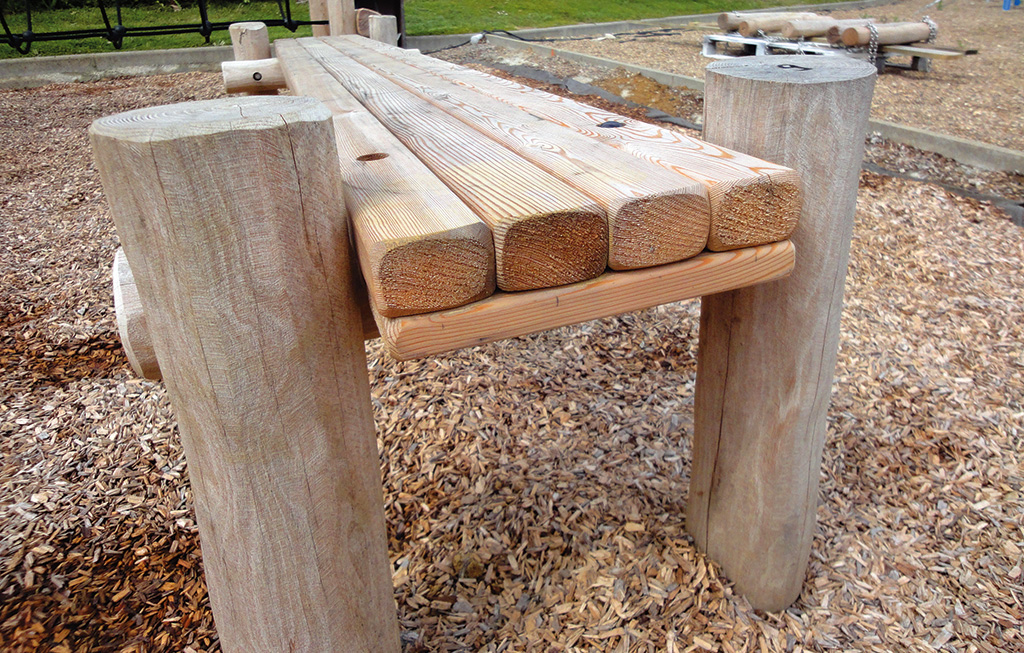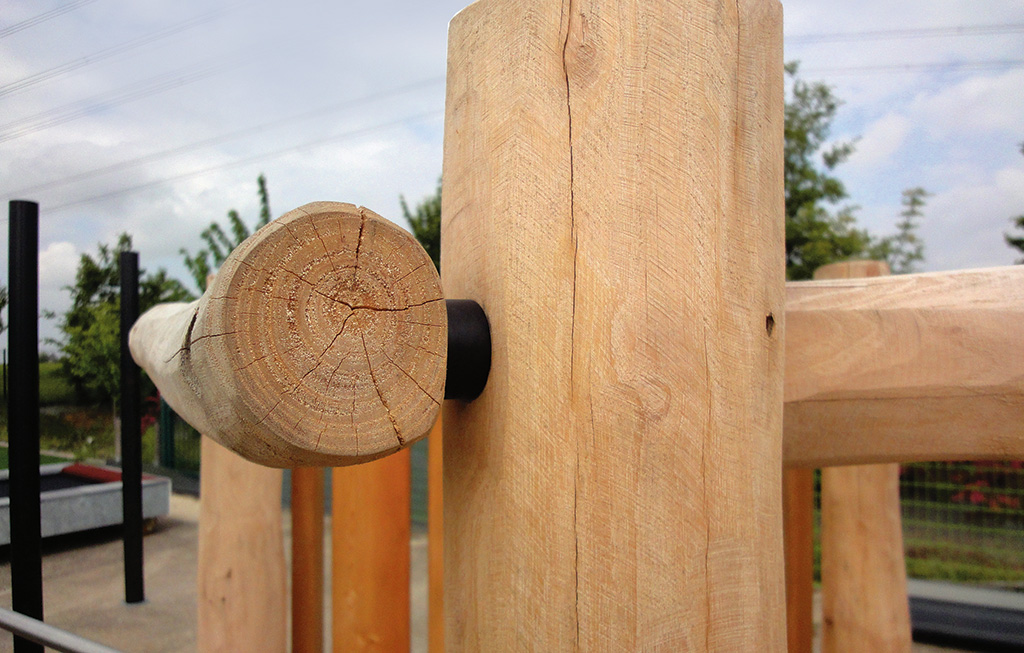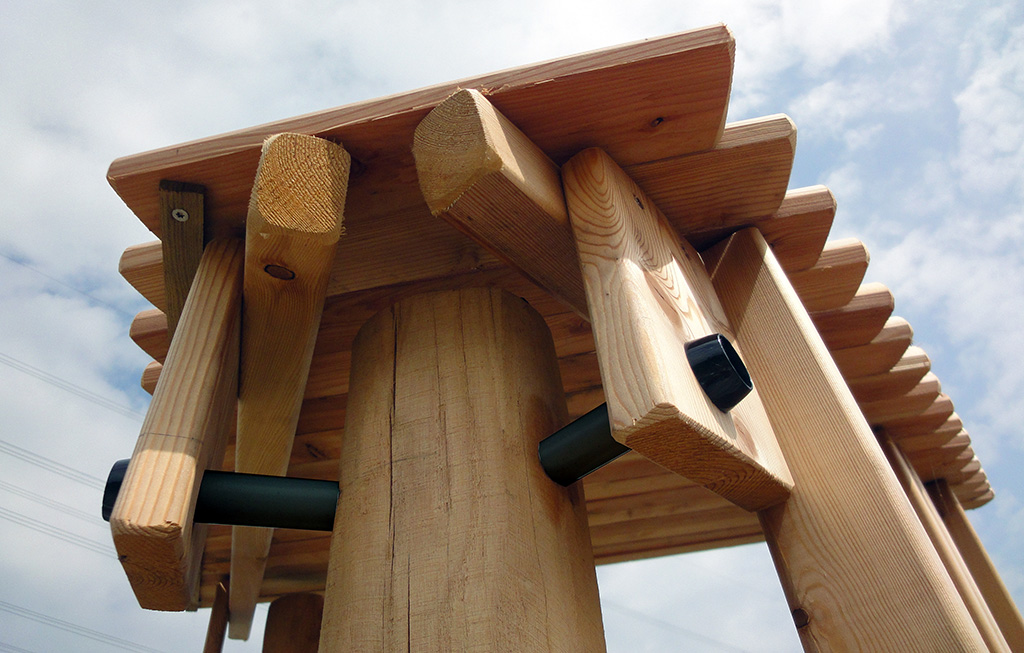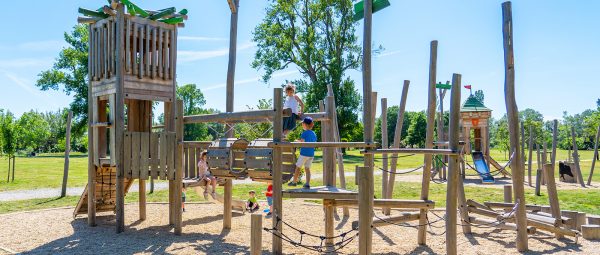Sustainable natural wood, a material with numerous advantages for a wood play area!
WHAT ABOUT THE PLANET?
. The species of wood used are sourced from sustainably managed forests.
. As Robinia and Douglas fir are naturally rot-proof, they require no treatment.



Robinia
Mechanical advantages

Robinia is easy to use, in a relatively raw state, just sanded to be comfortable to touch. It is an extremely hard-wearing material.
Robinia is perfect for items needing to bear heavy loads.
Physical advantages

Robinia is known for its longevity, as it is highly resistant to external damage (insects, fungi, adverse weather), and guarantees the durability of play area facilities.
Rot-proof on contact with moisture and stable over time, it can be inserted in the ground without the addition of chemical protection.
With no splinters and never burning, even after prolonged exposure to the sun, it avoids all risks of injury and ensures maximum safety.
Aesthetic advantages

Robinia’s curves and roundness lend it naturally to equipment with sleek and fun designs.
Douglas
Mechanical advantages

Douglas fir is a softwood species that combines remarkable mechanical properties with a high level of natural durability.
Its excellent moisture resistance makes it perfectly suited to outdoor use.
Physical advantages

Douglas fir has excellent longevity. Thanks to its natural resin content, it is resistant to fungi and wood-boring insects. It perfectly withstands climatic variations.
Douglas fir does not get hot in the sun, or cold in the shade, which makes it a particularly comfortable and reassuring material.
Aesthetic advantages

Douglas fir generally has a straight grain, which gives the wood a clean and uniform appearance.
Thanks to this regularity and the care given to its finish, it guarantees maximum tactile safety.




